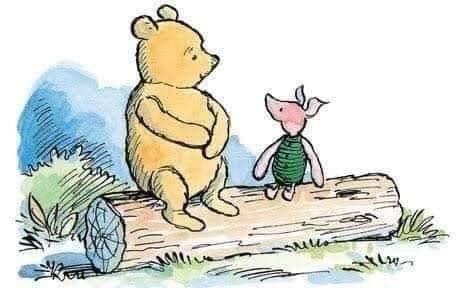With the loss of a child, naturally comes an incredible burden of grief. I’ve come to describe it as a backpack of bricks you are tasked to carry around forever. In the beginning, it is impossible to pick up. Try as you may, you won’t be able to move under its weight. As time passes, you will gather more strength and somehow begin to carry it around with you. Little by little you will maneuver through the days – though some will be more difficult than others. The backpack will always be yours however, there are no returns.
There are all sorts of grief in life and none of us will escape it forever. Grief encompasses all sorts of experiences with varying degrees of pain and discomfort. For now, we are talking about the grief that comes with the loss of a loved one, though the learning can overlap. We will all lose someone we love. Unfortunately, it is an inevitable fact of life. With that can come some valuable lessons in compassion for one another if you let the light in. That begins with understanding grief and what it is at its core.
Love.
Grief is nothing more than love itself. The bigger the love, the bigger the grief. Understanding that simple fact is key. If the love does not end, the grief does not end. Grief is not finite. Grief is personal. How one deals with it greatly depends upon who was lost, the love itself, and what tools the griever has in their toolbox.

Understanding that can be vital in supporting another human being or in helping yourself when faced with the inevitable road of loss, grief and depression. We all have different toolboxes full of strengths, defense mechanisms, support systems, etc. They are a cookbook of things we are born with, or learned from experiences in our lives, the good and the bad. How one “handles” a situation is most often determined by what tools are in the toolbox – grief is no exception.
It’s been my experience that society is very uncomfortable with grief, with tears, and with talking about those who have passed on, especially children. As if to mention them would be reminding us that they are gone. What I have learned is that the more space we make to allow open dialogue, to express real emotion and freedom to say how we feel, even years down the road, without fear of judgement is incredibly important to our healing.
That brings us to the subject of how to help. It’s really very simple. Know that the griever is not only sad, but probably battling some, or a lot, of depression as well, and needs a safe place to vent. I am not a medical professional and there are extreme cases, but in most situations what is really needed is the following:
-Ask, “How are you? Really?” or say, “Tell me about him/her.”
-Be quiet and listen
-Do not express shock or judgement at ANYTHING said. Do not belittle any feeling. Take a breath and wait.
-Say, “I’m sorry”, “That must be so painful”, “What can I do?”
-Do not give platitudes of any kind, start a sentence with, “at least…” or say, “still?”
-Try really hard not to compare your situation… (really don’t)
-Talk about their loved one…tell them of your favorite story. It’s music to their ears.
The griever doesn’t expect you to fix anything. Know that it took so much courage to come to you and express the feelings. Avoid shutting them down inadvertently by using one of the “don’ts”. Again, I am sure there are instances out there where more help is needed and medical care may be called for. That can be found out, and most likely will come to light with open dialogue and space to tell you so. It won’t happen if there is no trust and the griever feels too alone to talk or felt scoffed or belittled in some way. Know that their toolbox may be completely different than your own or your friend’s. How you coped, or would cope may be completely different as well. You don’t have to understand – you couldn’t really. You do not have to feel pressured to compare roads or try to drive the road for them. Simply stand with them on the road.
Grief is not a destination to be reached and conquered – I believe especially so in child loss. It is more of a test of endurance, a changing of ourselves. If we can however learn from it and help one another by offering an ear and and a perhaps a hug – not just a well meant platitude, we can take the steps forward with a little grace and perhaps more peace for the next traveler.


You took me through the looking glass of what defines grief. Thanks.
Amen! I am always here for you if you need anything…. Thanks so much for sharing these posts. I absolutely love them.